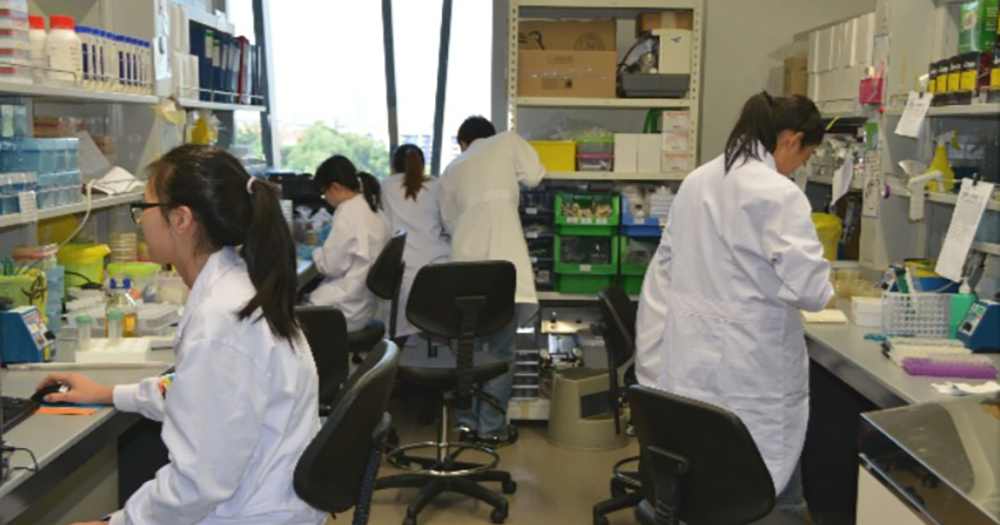The Ministry of Home Affairs (MHA) reiterated on Thursday, Sept. 27 that any review of Singapore’s position on cannabis will have to be “based on scientific evidence”.
In response to queries, an MHA spokesperson told Today that Singapore's drug-control policies are underpinned by evidence and research.
This was in the aftermath of news coming out of Malaysia and Thailand that both countries are exploring making medical marijuana a reality.
IMH findings show cannabis harmful
Literature review conducted by Institute of Mental Health experts confirms that cannabis is addictive and harmful, especially to the brain, the spokesperson said.
Evidence of cannabis’ long-term safety and efficacy is scarce, the spokesperson pointed out.
“These findings corroborate our position that cannabis should remain an illicit drug. Even if cannabinoid pharmaceuticals have to be used for medical purposes, there are carefully established frameworks in Singapore for their clinical prescription,” she said.
Singapore conducting medical marijuana research
Announced to some fan fare, Singapore’s National Research Foundation (NRF) in January 2018 said it would develop synthetic chemical compounds found in the marijuana plant as part of a broader S$25 million investment into synthetic biology.
The initiative will help boost Singapore’s push to develop a “bio-based economy”.
The NRF said it plans to produce strains of medicinal cannabinoids derived from the cannabis plant for therapeutic purposes relating to diseases such as Alzheimer’s and Parkinson’s.
Cannabis plants contain more than a hundred other cannabinoids, which include tetrahydrocannabinol (THC) and cannabidiol (CBD).
THC is the psychoactive element of weed that produces a high, while CBD is used for pain relief and produces no high.
"Research into cannabinoids complements and leverages Singapore's strengths in biomedical research, and is a niche area that Singapore can compete globally in," a NRF spokesperson told CNBC in April 2018.
Synthetic chemical compounds
Projects funded by the foundation will identify genes to create synthetic cannabinoids.
This would circumvent the tough drug laws as researchers in Singapore would then not need to grow the cannabis plant.
One venture is centered on developing synthetic CBD for prescription medicine and specialised treatments for Alzheimer's, Parkinson's and a range of other illnesses.
It may eventually expand to include other non-psychoactive compounds.
It is led by Associate Professor Yew Wen Shan from the National University of Singapore.
Singapore's tough stance against drugs
The Singapore government has pointed out that the use of marijuana should not be seen purely as a public health or medical issue, as it stands firm about not decriminalising and legalising drugs.
In September 2018, Law and Home Affairs Minister K Shanmugam said the opioid crisis in the United States and its growing cannabis problems underscore why Singapore must take a “firm and clear-headed” approach on drugs or the problem will “spiral out of control”.
The MHA spokesperson also reiterated that Singapore “adopts a comprehensive and sustained approach to tackling both drug supply and demand”.
Last year, the number of drug abusers arrested comprised less than 0.1 percent of its population -- or as Singapore calls the issue, remaining relatively "drug-free".
With such low incidence levels, the MHA spokesperson said: “Decriminalisation and legalisation of drugs, including cannabis, is not relevant, nor necessary or appropriate in societies such as ours, with the drug situation well under control.”
[related_story]
Penalties for cannabis possession or consumption
Possession or consumption of cannabis in Singapore can result in up to 10 years of imprisonment, a S$15,000 fine or both.
Citizens and permanent residents are still subject to the same penalties if found to have consumed the substance even outside the city-state.
If you like what you read, follow us on Facebook, Instagram, Twitter and Telegram to get the latest updates.
